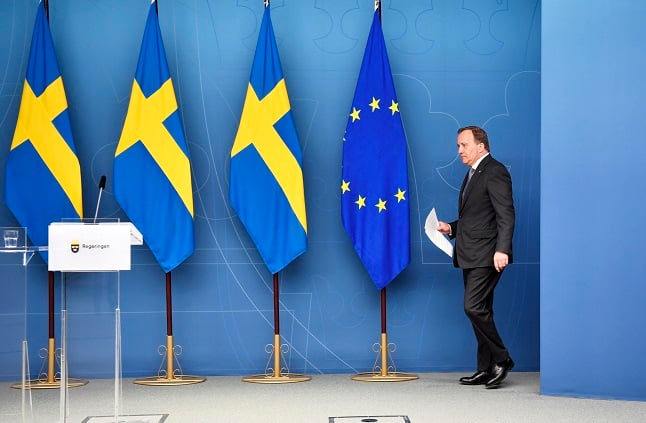The Social Democrat leader — a master of consensus to some, a dull and visionless party man to others — has had seven days since the confidence vote in which to attempt to secure a parliamentary majority in his favour. Now, his options are very limited.
The 63-year-old Löfven, a former welder and union leader, guided the Swedish left back to power in 2014, and then hung on by moving his party closer to the centre right after the 2018 elections.
He finally fell out with the Left Party propping up his government, becoming the first Swedish government leader to be defeated by a no-confidence vote.
The motion of no confidence was filed by the far-right Sweden Democrats, after the Left Party said it was planning such a motion itself in protest against a plan to ease rent controls. However, the Left Party did not have enough MPs to put forward the motion alone and refused to co-sign it with the far-right party, prompting the Sweden Democrats to file it instead.
- TIMELINE: The key events that led to the Swedish government’s collapse
- How Stefan Löfven lost his hold on the Swedish parliament
On the left, the proposal for “market rents”, that would potentially allow landlords to freely set rents for new apartments, is seen as being at odds with the Swedish social model and a threat to tenants’ rights.
The conservative Moderate Party and the Christian Democrats, who support market rents but are against Löfven’s government, were quick to back the motion, which was passed by 181 MPs in the 349-seat parliament. Last-ditch efforts to appease the Left Party, which holds 27 seats, failed.
Critics, including the leader of the Centre Party Annie Lööf, have described the constellation as an “unholy alliance” of parties at opposite ends of the political spectrum.
After 11 unsuccessful no-confidence votes in modern Swedish political history, Löfven, who has previously distinguished himself by his ability to survive political crises, thus ended up setting an unwanted precedent.
Any snap poll would be held in addition to the general election scheduled for September 2022, which would result in two ballots in just over a year. If Löfven opts for a snap election it would be the first in the country since 1958.
According to an Ipsos opinion poll published Tuesday, the right and far-right would come out on top in a general election, with a very slim parliamentary majority.
If Löfven chooses instead to resign, it will be up to parliamentary speaker Andreas Norlen to open negotiations to find a new prime minister. He would have to consult each party before proposing a new PM, to ensure that the new government would command a majority, and this could see Löfven return to the top job, or could open the way for Moderate Party leader Ulf Kristersson to assume
the office, or another candidate who can build a majority.
If the process is unsuccessful, then it would be back to a general election.




 Please whitelist us to continue reading.
Please whitelist us to continue reading.
Member comments